The Case is Closed, Forget it (L’istruttoria e chiusa: dimentichi) is a prison drama from 1971 directed by Damiano Damiani.
The architect Vanzi (Franco Nero) is in jail for a traffic incident only. Bad luck for him there seems to be a witness testifying of a hit and run, and the judge isn’t fond of him either. As he is biding his time, waiting for evidence and testimony to work in his favor, he has to deal with a psychotic murderous cell mate (John Steiner) and various other players within the prison walls. For a while his ability to tap outside money sources shields him from most harm and only reluctantly he seeks the proximity to Rosa (Claudio Nicastro), who’s a friend of friends. When he refuses to play along with an attempt to silence Pesenti (Riccardo Cucciolia) an inmate who seems to have irked the wrong big shots, he loses the little privileges he had and becomes a target himself, which includes disciplinary measures by the warden, such is the reach of the mafia who he pissed off by not complying…..
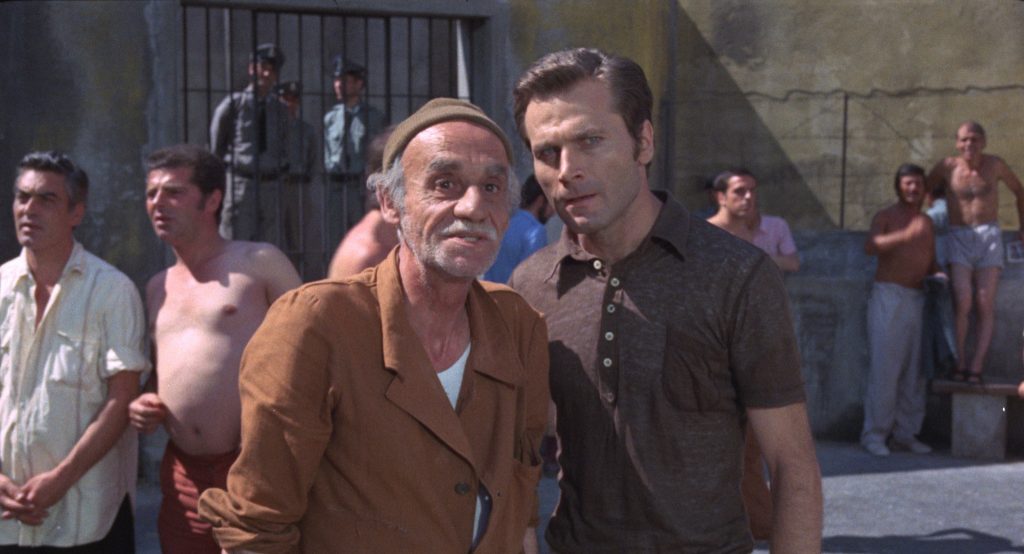
Based on the novel Tante Sbarre, The Case is Closed, Forget it is a wholly different kind of mafia movie. The mafia does play a role here, but this is a completely different indictment of Italian society at the time than most movies. But let me take a step back. First of all, we start with a premise that has become almost a staple of prison movies: Vanzi doesn’t “belong” there. An arrogant point of view, but nonetheless, he seems like an innocent, falseley accused temporary inmate, and he is upper middle class, the kind of person who any sort of judge might otherwise have let walk for bail money until the misunderstanding is sorted out. But he sits. And now he finds himself in a place where his education, wealth, social standing, manners and so on no longer matter as much as they do in the free society. Different rules apply here, and yet, prison is a microcosm or a distorted mirror of society and its examination is a study of power dynamics that are entirely not working in his favor – until he gets put through the manger enough so he learns to fall in line after all.
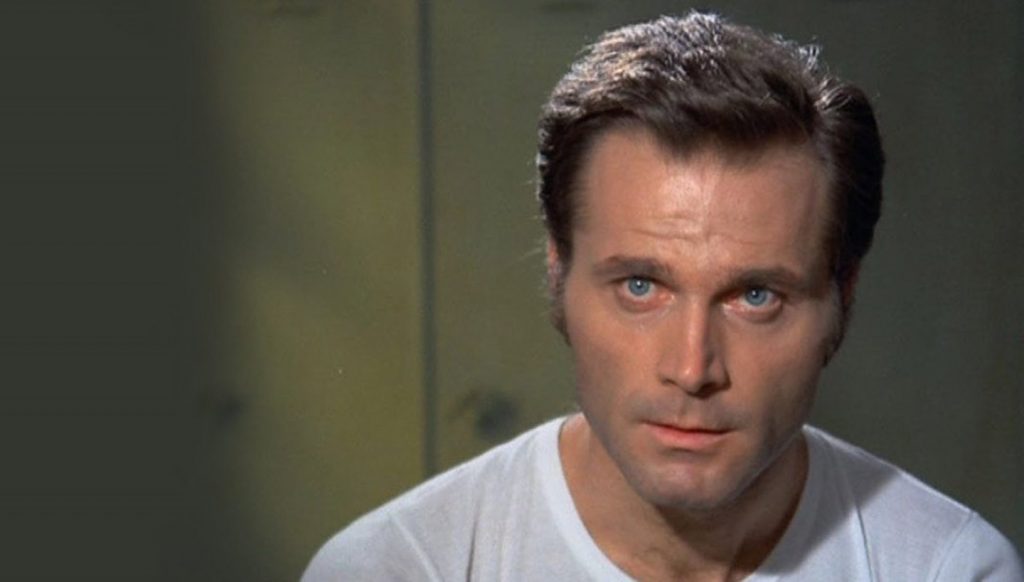
It may be one of my least favorite of the Damiani films, but just because the subject is inconvenient doesn’t make the film a bad one, quite the opposite. As far as prison flicks go, this is right up there with the best. It’s great because it’s messing with some usual tropes and it doesn’t need to play out its cards. We don’t need to know to the full extent of who Pesenti is and what he does, it’s enough to know that he’s a thorn in the machine’s side. Rosa is not a mafia boss but it’s enough to know that he’s well connected enough and he has the head guard in his pocket. The head guard (played by Ferruccio de Ceresa), who is also not a masochist die hard or typical prison fascist, but a regular fella earning little money worrying about the future of his kids. And then there’s Vanzi, who’s clearly not a hero, and he’s als not a cop or journalist or whoever usually goes against the mafia. He’s a random guy in the wrong place.
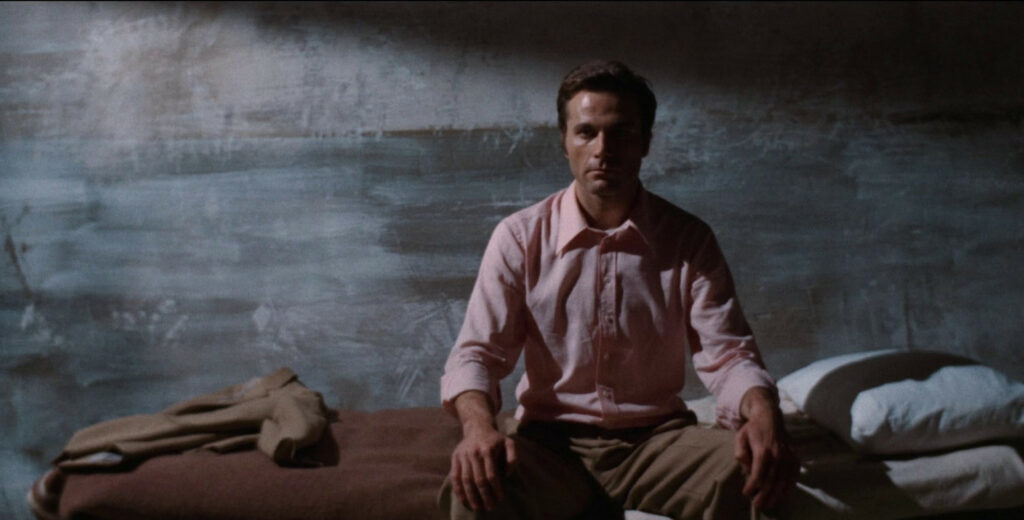
The Case is Closed, Forget it then shifts gears and becomes all about Vanzi’s about face. At first he’s stubborn, he refuses to accept the situation he’s in, he refuses to play along, to look away and so on. But it takes very little for him to fold. It’s almost as if the movie is not an indictment of the corruption of society in terms of the mafia, corrupt politicians, underfunded jails or the slowness of the judicial system, but the way in which the Vanzis of this world will cover their ass if faced with the misery that most others face in the system that they prop up. That may be a message of this movie. Vanzi ends up discharged from jail, and while Pesenti ends up in the morgue, he ends up on a yacht with his family back in his regular affluent life. Yet he folded, he took the easy way out. Because a suicide it wasn’t…. and the movie ends with a very unsatisfactory ending. No big bang, no big conclusion, no karma or restitution. It ends up with a complicit non-hero protagonist getting away scott free. A tough movie to think about, an inconvienient one.
This one had been out on BluRay in Germany for a while but I don’t believe I ever reviewed it. My memory had faded a bit. Once again what stuck is Ennio Morricone‘s subtle but very experimental score with lots of noises of different kinds to underline the inconvenience of the subject matter on a musical level. Damiano Damiani plays Vanzi’s lawyer. The movie is acribic, minimalistic, claustrophobic and maybe the most Kafkaeske of treatments by Damiani. It’s one of his less accessible works, but also among his more impressive and substantial treatments of serious material. It’s harsh, procedural, inconvenient, unconventional and damning. That makes it a highly interesting movie and a very fine and nuanced mafia film at that.
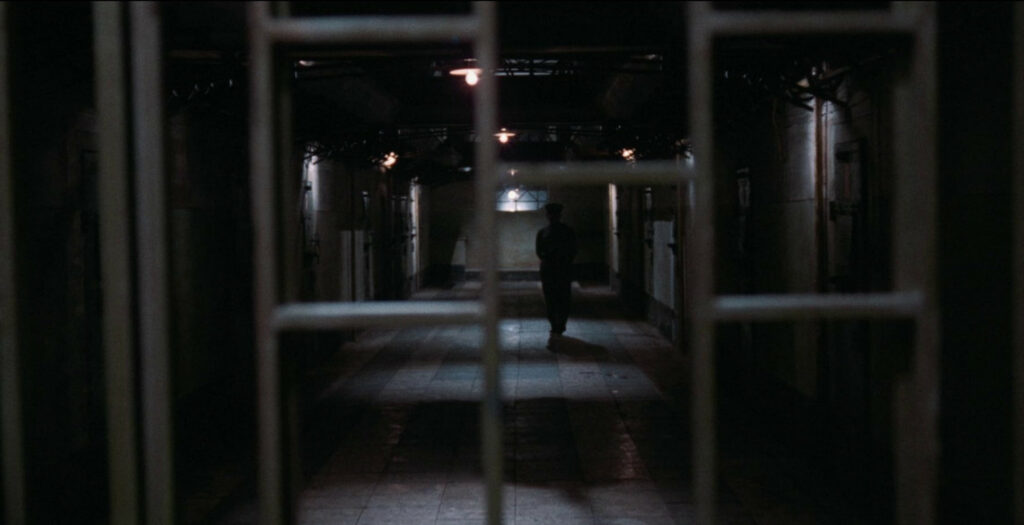
The BluRay is part of Radiance Films’ excellent (must-have) Cosa Nostra: Franco Nero in three Mafia Tales by Damiano Damiani, see my other reviews of the included titles. It will be out July 24.
The transfer looks great, and showcases the director’s and the cinematographer’s prowess at lighting in dense spaces. It is a claustrophic film but it’s rich in colors and palettes and textures, there are closeups of characters and long shots illustrating the location. It looks fantastic.
You can play the movie in Italian or English. There are English subtitles for the Italian audio, but there’s also English SDH subtitles for the English audio. It sounds quite well, wich excellent audibility of the dialogue and no obvious damage or noise that’s not intentional, not least stemming from Morricone or the ambience. I didn’t test the English dub this time around, I may amend this text later.
Aside from the Italian trailer, there’s an interview with Franco Nero (14 min), which of course along with those bits contained on the other two discs makes for a lengthy one overall. Then there’s an archival documentary from 2015 which includes interviews with assistant director Enrique Bergier, the actor Coarrado Solari and editor Antonio Siciliano chronicling the making of this film. Lastly there’s Rachael Nisbet‘s essay exploration of Damiani’s work, an exclusive 35min featurette from earlier this year.
The other films in the box are: How to Kill a Judge and Day of the Owl, and there is a 120-page book, so I’d say it’s a must own!
Buy now: From Amazon.co.uk | From Amazon.com | From Amazon.ca | From Amazon.de
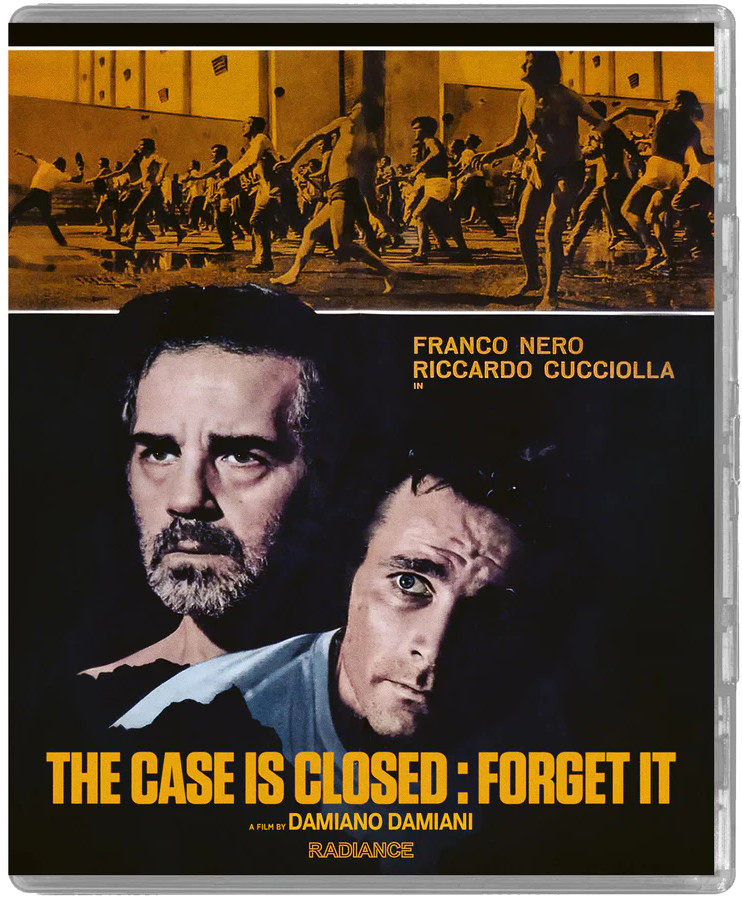
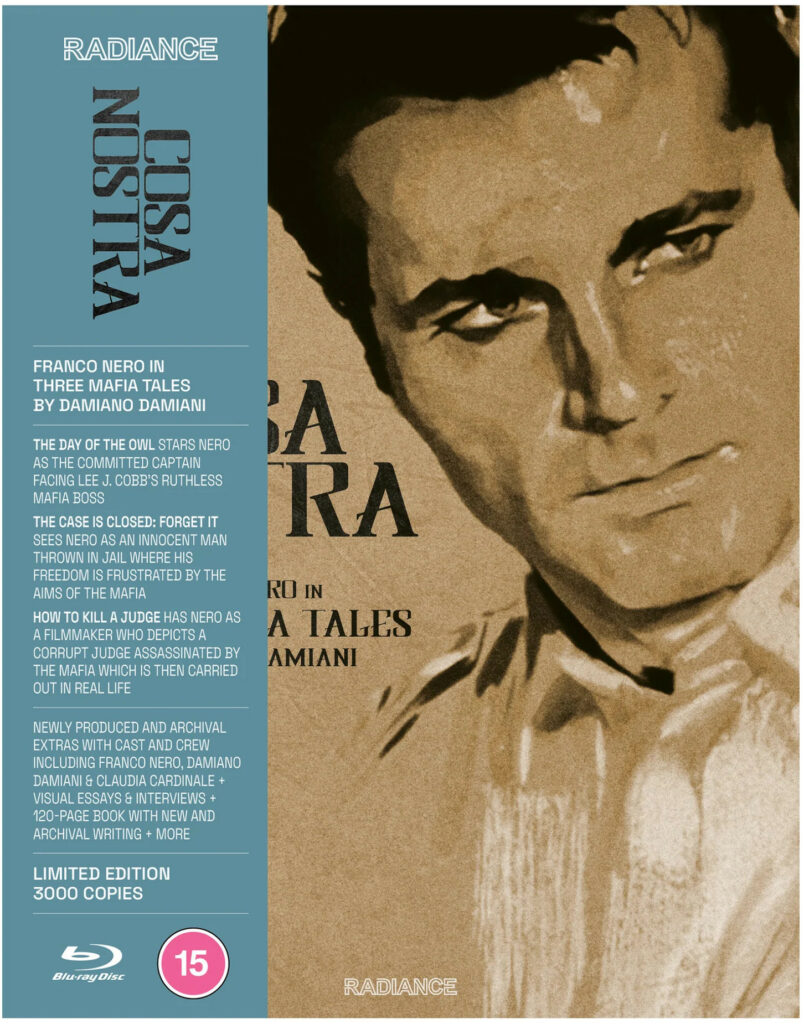

Furious Cinema’s Radiance Films review series. Click to read more.

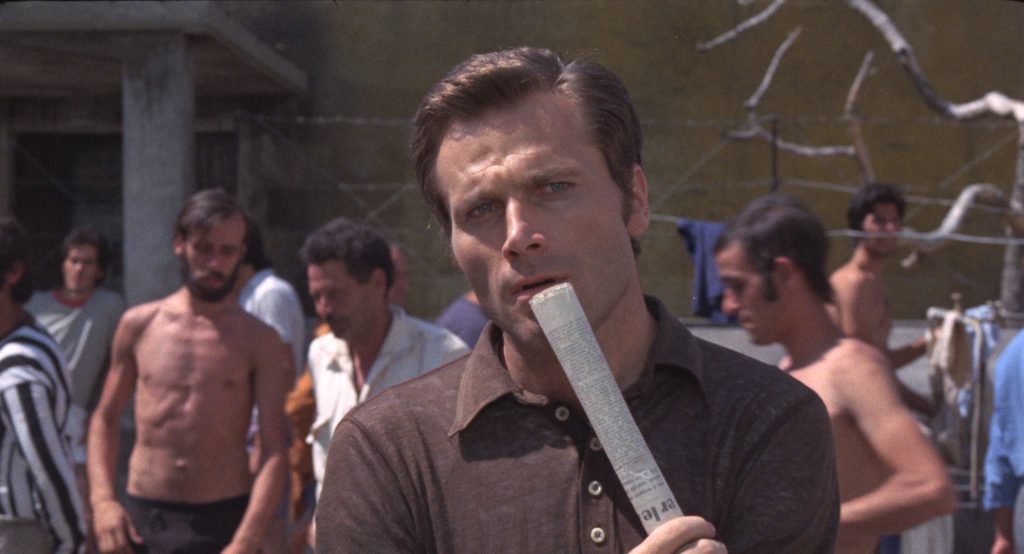





One thought on “The Case is Closed, Forget it”
excellent review!